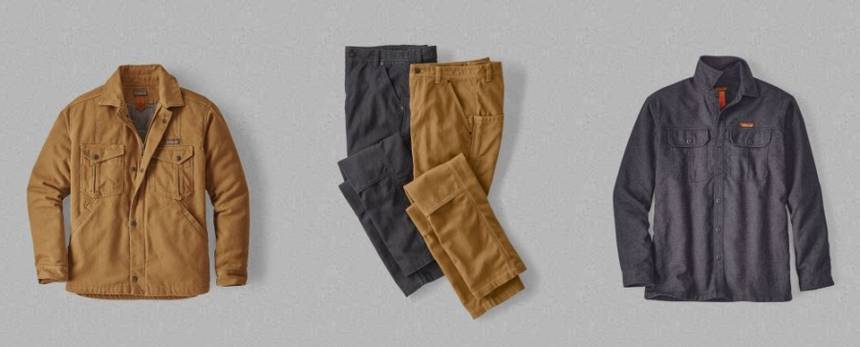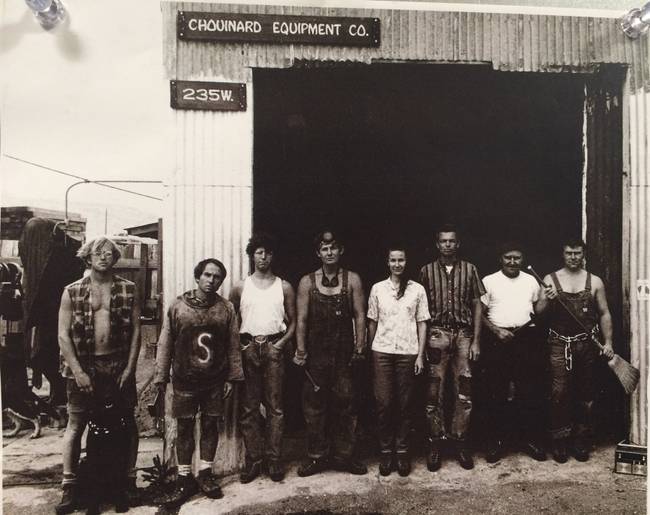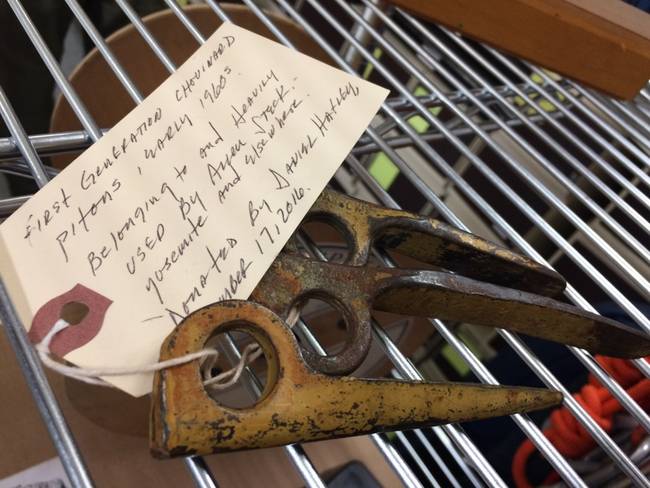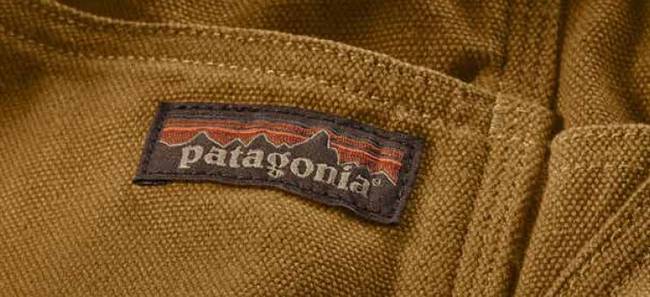Source: treehugger.com
Published: August 2, 2017
Updated October 11, 2018
Finally, there is now an ethical and practical alternative work wear option to Carhartt and Dickies.

Screen capture Patagonia
Patagonia is one of those companies that really stands out, not only because of its high quality and design standards, but also in terms of its social and environmental responsibility. And while some of its customers may choose Patagonia clothing and gear because of its cachet, many others are loyal buyers because the products are so well made for their specific purpose, and are built to last a long time.
However, like any high quality product, the costs are a bit higher than your run-of-the-mill alternatives, but when considering the overall value of the products (how well they work and last, and how rugged and repairable they are), Patagonia items end up being a heckuva deal in the long run. And now the company is making a bid to dress not only the outdoors crowd, but also the workers, artisans, and handcrafters that build, labor, and serve indoors and out, in all kinds of conditions, in its new rugged hemp clothing line.

Author/CC BY 2.0 [Above: Tin Shed, back in the day.]
The Patagonia Workwear line might seem like a bit of a departure from the current crop of clothing offerings, but it’s actually part tribute to the company’s earliest days, when founder Yvon Chouinard, a pioneering big wall climber, saw a solution to replace single-use iron pitons, which were the standard protection option for climbing up through the 1950s. He bought a used coal forge and anvil and learned how to forge reusable steel pitons, eventually moving into the now iconic Tin Shed which sits behind the company headquarters to this day. Heavy-duty clothing to stand up to the rigors of climbing big walls and exploring the outdoors came next, and is a mainstay of the company to this day, although with a decidedly modern look and feel to them.

Author/CC BY 2.0
However, this new Workwear line is like a throwback to the early days of hand forging, based on traditional work clothing. Blacksmithing, especially with a coal forge, is an arduous and rather dirty work, requiring clothing that can stand up to the heat, the dirt, and the constant abrasion, and many other professions need this same quality of rugged work wear, so this new line seems like a natural fit for Patagonia.
At the core of the Workwear line is the Iron Forge Hemp Canvas, which is an innovative 12.9 oz blend of 55% hemp (pesticide-free), 27% recycled polyester, and 18% organically grown cotton. And when I say it’s innovative, I’m not just throwing words out there, because this hemp fabric is nothing short of amazing. I’ve been wearing Carhartt cotton work pants for years, both the heavy double-knee version and the lighter weight version, and have owned a number of hemp clothing items over the years, so I think I have a good feel for the current standards of both work wear and hemp fabrics, and the Iron Forge Hemp fabric is a whole different animal altogether. I had the opportunity to handle some of the material and clothing from the Workwear line earlier this year, and was incredibly impressed by not only the fabric, but also the meticulous attention to details that Patagonia designs into its gear right from the get-go.
While a new pair of heavy-duty Carhartt pants are so stiff as to be able to stand up by themselves, the Patagonia Double Knee pants made from the Iron Forge Hemp canvas are so soft and supple as to be more like linen than canvas, and yet the material is said to be “25% more abrasion resistant than conventional cotton duck canvas.” There’s no breaking-in period required, and no chafing or annoying swishing noises from wearing this new work wear, and it has a very comfortable weight and feel to it. On the other hand, early hemp clothing resembled burlap or canvas sailcloth, and even the blends had a scratchy feel to them, whereas the new Iron Forge Hemp material is absolutely soft to the touch. According to the company, the inclusion of some organic cotton and some recycled polyester in the makeup of the fabric gives it a soft “hand” and allows for a tighter weave, which is also a necessity in everyday work wear.

Patagonia/Screen capture
Although the new line includes several work shirts and jackets, I paid more attention to the details of the pants, because I’m notoriously hard on my own pants and am rather picky about the particulars of things I wear every day. Pockets, for example, are often just built wrong on clothing, and belt loops and reinforcements are often weak, while many times there is no allowance designed into them for the actual range of movement needed to do manual labor. With Patagonia’s new pants, however, everything from deep secure pockets to the finish stitching to the pleats and gussets and large rugged belt loops to the reinforcement at critical points, is built right into them. It really illustrates how well the company assesses and meets the needs of the actual users of its products (and it helps that the employees are all avid fans of the clothing), and gets practical feedback from field tests to evaluate and then further refine the products.
Quite frankly, I’m impressed by this new line of products, and will most likely be lining up to buy a pair of the Double Knee pants and perhaps the Ranch jacket to replace my aging Carhartt canvas coat. I’m not really ‘into’ clothes, but I do know what I like, which is a blend of practical and rugged for all day every day wear, and these absolutely fit the bill. At $79 for the pants, it’s about double what I would spend on a pair of other canvas work wear pants, but a side-by-side comparison in feel, design, and feel-good and do-good factor (hemp and organic cotton and recycled polyester, plus being sewn in Fair Trade Certified facilities) reveals they are easily more than double that in overall value. It’s hard to really grok what the fabric and the clothing is like just from photos, but I’m convinced that it will sell itself, because once you try on something made from Iron Forge Hemp canvas, you won’t want to take it off.
“Our Workwear line is built to meet the needs of the men and women who are putting real environmental solutions in place on the ground, redefining what progress really means. The company’s early roots in iron forging, our ongoing commitment to conservation and our forward-looking investments in organic regenerative agriculture have us well-placed to build the best product for the folks who require true workwear, backed up by our Ironclad Guarantee.” – Ed Auman, Patagonia’s business director for Workwear
See the full fall line of Patagonia Workwear at the company’s website, or very soon in person at the very first dedicated Workwear store, which is opening this month in the historic Ballard neighborhood of Seattle.
[Disclosure: Patagonia covered my travel and lodging costs to its headquarters in Ventura earlier this year, so I could get a first-hand look at the new Workwear line. While there, I also got a glimpse of the company culture and ethics, including its strong CSR programs and its financial support for activists and boots-on-the-ground volunteers, as well as its continued commitment to being a leader and a visible face in the environmentally-friendly outdoor gear sector. That said, all opinions, errors, or omissions in this article are mine alone.]
